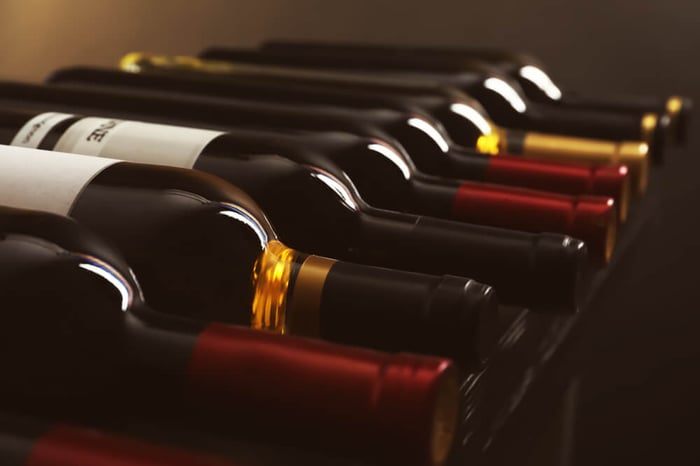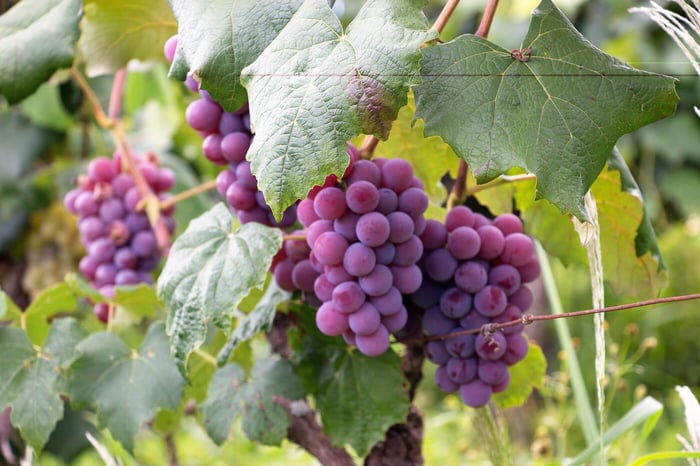How to Store Wine: 5 Tips for Storing Wine at Home
If you enjoy reading this blog, please consider sharing it on social media!
Dylan James
Internet Marketer and wine drinker, blogger for BuyWinesOnline.com.
So, your wine collection has expanded and you are learning that the top of your fridge isn’t a suitable place to store your wine. Maybe you bought a 12-bottle case and now you're wondering how to make them last in your home. Perhaps you had a bad experience with a spoiled wine bottle in the past and never want to experience it again. So many of these problems can be solved be simply storing wine properly.
You have come to the right place, because today I am going to give you Five Tips on How to Store Wine at Home. Learn how to store wine after opening it in the most effective way; learn these easy steps now! Wine preserving is easier than ever!

Keep your wine rack away from direct sun and out of the heat.
Follow this advice and the tips below on how to store wine and increase its shelf life.
Temperature is Key
Out of all of the factors that influence the quality of a wine being stored, its storage temperature is most important. When wines are not kept at their optimal temperatures, they are more likely to spoil. You can store red wine or white wine in a wine cellar or a cool dark place to make them last longer and keep them at a perfect temp.
If a wine is stored in too high of a temperature above 70°F (21.1°C) it can speed up the aging process and ruin necessary components. When wine is kept in a cold climate, it can freeze and ruin the bottle. Even small fluctuations in temperatures can have permanent effects on a bottle of wine, so try to keep the temperature as stable as possible. The ideal temperate for wine storage is going to be around 55°F (13°C) .
Keep It Dark, Keep It Still
There is an important reason that wine experts recommend storing your bottles in a dark place. UV rays from the sun can permanently degrade the quality of the wine and age it quickly, posing a large problem for anyone trying to pursue long term storage. Keep your wine away from windows and direct sunlight, and try to limit variations in temperature when possible. Additionally, try to protect your wine from vibrations that can make it age before its time. Ironic, since some people drink red wine to age slower!
Horizontal Bottle Placement
Storing the bottles on their side rather than vertically keeps the liquid in the bottle in constant contact with the cork and prevents the cork from drying out and leading to oxidation of the wine. Once a stored bottle has begun the oxidation process, it is impossible to save and suddenly you’re left with a decoration. Positioning the bottle on its side can slow down the oxidation process, though factors like room temperature and humidity can also play a role.
Check Your Humidity
When creating a wine storage area or wine cellar it is vital to think about how humidity will play a role in the longevity of the wine. An RH (relative humidity) of around 50% - 70% is conventionally the ideal humidity level for long term storage.
If air in the wine cellar or chosen storage area is lacking the correct moisture, it can cause drying of corks and eventually oxidation of the wine. On the other end of the spectrum, if there is too much moisture in the air, it can cause mold and degradation of the labels on the bottle.
Store Open Bottles Correctly
Many wine drinkers wonder how to store an open bottle of wine while not allowing it to spoil. I’m here to tell you that you can take that leftover wine and refrigerate it but keep it mind that the goal here is to prevent oxidation and keep the cork moist. To comfortably house the wine for optimal conditions, place the bottle in the fridge. Additionally, placing it in a wine cooler can help to prevent any premature aging or spoiling.
Note
One benefit to wine storage is that there are not many differences on how to store opened red wine and how to store white wine. Red wines and white wines react to humidity, sunlight, vibrations, and heat in the same way, but their different makeup (due to their tannins) make them better at storing in different temperatures. Make sure the wine you are storing is being kept in the right conditions. When you finally pull your wine out, make sure you have some good cheese to pair it with!
Follow these tips and you will be able to keep the wine that you like for longer.
If you enjoyed reading this blog, please Subscribe to Our Newsletter so you can keep up with any new content, deals, and promotions that we are running on our website.





